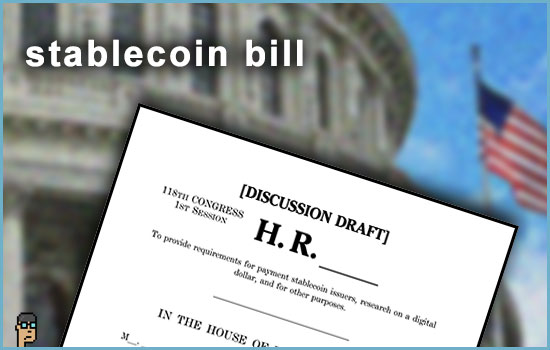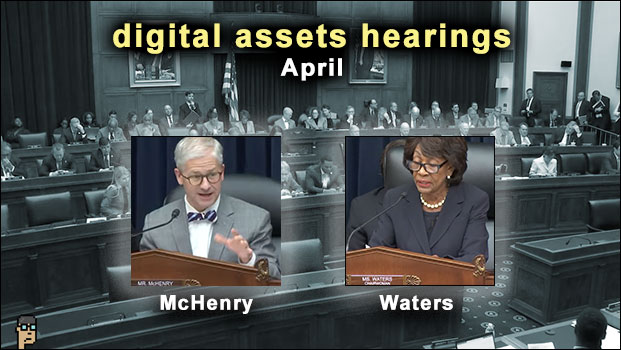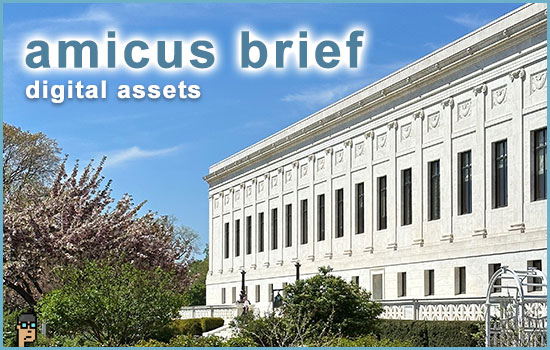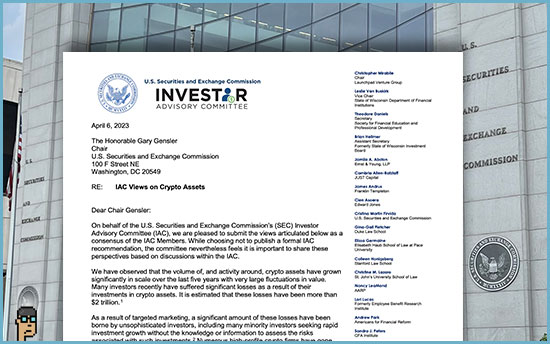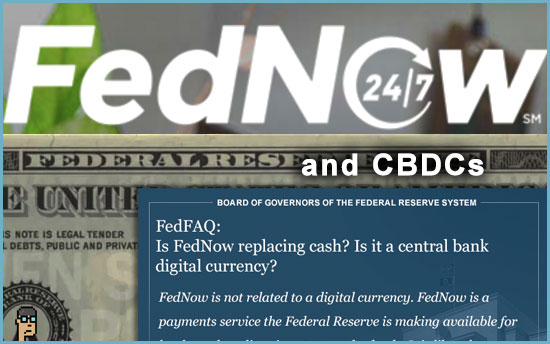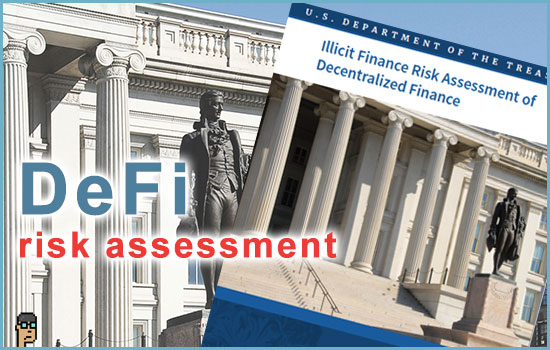Here’s today’s blockchain tipsheet… prefer it by email? Sign up here.
stablecoin bill – arrival
It has arrived. History in the making?
In anticipation of this Wednesday’s hearing in front of the Subcommittee on Digital Assets, Financial Technology, and Inclusion, the House Financial Services (HFS) Committee unveiled a discussion draft on Saturday of the new, 73-page stablecoin bill (PDF) – “To provide requirements for payment stablecoin issuers, research on a digital dollar, and for other purposes.” This bill has been the pet project of Chair Rep. Patrick McHenry (R, NC) and Ranking Member Maxine Waters (D, CA) since last year.
The hearing will be led by Chair French Hill (R, AR) and Ranking Member Stephen Lynch (D, MA), and appears to offer the argument on why a stablecoin regulatory framework is needed in the first place.
stablecoin bill – memo and agenda
In a memorandum produced by House Financial Services for the hearing, definitions lead: “Stablecoins are a class of digital assets designed to offer price stability by being pegged to another asset’s value. The most popular stablecoins are currently pegged to the U.S. dollar. Stablecoins, as the name implies, are intended to be less volatile than other digital assets and sufficiently stable to enable them to be used in a similar manner to currency.” See the HFS memo (PDF).
Wednesday’s agenda currently includes a state regulator among industry participants.
-
- Adrienne Harris, Superintendent, New York State Department of Financial Services (NYDFS)
- Dante Disparte, Chief Strategy Officer and Head of Global Policy, Circle
- Austin Campbell, Adjunct Assistant Professor of Business, Columbia Business School
- Jake Chervinsky, Chief Policy Officer, The Blockchain Association
- “Additional Witness”
The “additional witness” would seem to ideally include a representative of U.S. Treasury (FDIC?) which has been identified by Chair McHenry in the past as a key participant in the creation of the bill.
Agenda updates, including the live stream, will be here on the HFS website.
stablecoin bill – reaction
Jeremy Allaire, CEO of USDC stablecoin issuer Circle, commented on Twitter regarding the bill, “While comprehensive, there are clearly open and challenging issues with the bill as proposed, and now is the time for our country and political leaders to really dig in and get this right. The role of the dollar in the world is at stake.”

